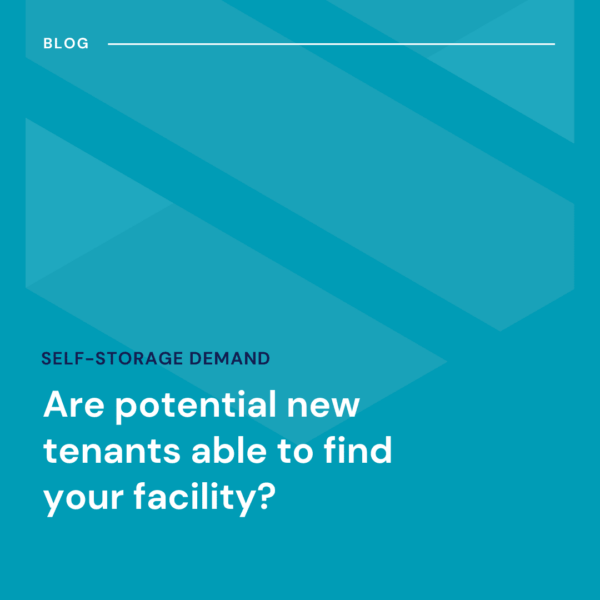
The COVID-19 pandemic may be waning, but the pandemic-fueled lift in business for the five publicly traded self-storage REITs is not.
During their first-quarter earnings calls, executives at the five REITs reported continued strength in occupancy rates, rental rates and revenue growth.
Despite the sunny results, however, financial analysts mostly downgraded the sector. Shares of the Big 5 storage REITs tumbled in tandem, each stock falling more than 20% from April 22 through May 9.
While the slump in the sales price might lead you to believe the REITs had fallen on tough times—at the moment it is quite the opposite. In fact, four of the REITs just boosted their same-store revenue outlooks for 2022. Only Glendale, CA-based Public Storage, the biggest of the REITs, didn’t adjust its revenue forecast for this year.
“We are off to a great start in 2022,” Scott Stubbs, chief financial officer at Extra Space Storage, said in a remark that could sum up the situation at all five REITs.
Here’s how four of the REITs tweaked their 2022 projections for growth in same-store revenue:
- Malvern, PA-based CubeSmart. Previous guidance: 8% to 10%. New guidance: 8.75% to 10.25%.
- Salt Lake City, UT-based Extra Space Storage. Previous guidance: 10.5% to 12.5%. New guidance: 13% to 15%.
- Williamsville, NY-based Life Storage. Previous guidance: 9.5% to 10.5%. New guidance: 10.5% to 11.5%.
- Greenwood Village, CO-based National Storage Affiliates Trust. Previous guidance: 8% to 9.5% increase. New guidance: 11% to 13%.
Marc Boorstein, principal of Chicago-based real estate brokerage and investment firm MJ Partners Real Estate Services, said the four REITs’ “very bold” forecast revisions came as a “real surprise.”
“The REITs are extremely optimistic,” Boorstein said. “But when they start the second quarter with occupancies in the mid-90s and they are seeing a lot of good trends in April, they think they can push rates on existing customers because there is still demand from new customers.”
Occupancy stays strong
“Overall, business is excellent and self-storage fundamentals remain at all-time record levels,” said Tamara Fischer, president and CEO of National Storage Affiliates, during the company’s earnings call.
“The sector is well positioned in an inflationary environment as a needs-based service with monthly leases that allow operators to adjust rates dynamically at a rent payment that represents a relatively small portion of our customers’ disposable income,” she said.
Much of the REITs’ optimism about robust revenue growth stems from occupancy rates that remain healthy. For instance, Life Storage reported a same-store occupancy rate of 93.7% as of March 31, down slightly from 94% at the same time in 2021. Similarly, Extra Space notched a same-store occupancy rate of 94.5% as of March 31, compared with 95.3% at the same point last year.
Of course, those occupancy rates are likely to climb in the second quarter, which is the busiest quarter of the year for self-storage operators.
Pricing power remains
Meanwhile, rental rates for new and existing customers are attractive. At Life Storage, for example, rates for new customers were up a little less than 20% in the first quarter, according to Andrew Gregoire, the REIT’s chief financial officer. At the same time, move-in rates are robust. Public Storage says its move-in rates jumped 15% in the first quarter.
“We see outsized demand for vacant units throughout [our] markets. Both consumers and business customers are aggressively seeking space, along with more traditional drivers for this time of year, which include home sales and college students,” Public Storage CEO Joe Russell said. “The consumer and business-customer environment is still very strong.”
Joe Margolis, CEO of Extra Space, said his REIT isn’t seeing too much pushback from existing customers about their rental rates being hiked.
“Our vacate activity in response to rate increases is probably double what it normally is,” he said, “but demand is so strong and our ability to backfill those tenants is [so] consistent across the country that it hasn’t affected us in terms of results, in terms of performance.”
Hot competition for assets
The REITs’ first-quarter success has contributed to some of them raising acquisition expectations for 2022.
Previously, Extra Space planned to make $500 million in acquisitions this year. Now, that figure is $800 million. Meanwhile, Life Storage has lifted its full-year target for wholly owned acquisitions from between $550 million and $650 million to between $700 million and $900 million.
By and large, though, the REITs don’t anticipate many large portfolios trading hands this year. Rather, they generally expect to pick up single assets and small portfolios. But the competition for those properties promises to stay hot, as private capital outfits with money to burn chase deals in the sizzling self-storage sector. That’s despite rising interest rates and steady cap rates, Boorstein noted.
“We imagine cap rates will be impacted by rising interest rates, but we have not seen it [yet] in the REIT subset,” he said.
In recent weeks, some prospective buyers have eased up on their acquisition activity, given the increase in interest rates and the overall cost of capital, National Storage Affiliates’ Fischer said. That, she added, could lead to a slide in cap rate compression.
New supply muted
Also on the competitive front, REIT executives still foresee a muted impact this year on their portfolios due to new supply coming online. Public Storage’s Russell said that nationwide, an estimated 500 to 600 new facilities will open each year over the next couple of years.
“It’s harder now to buy land. It’s harder now to get projects approved. It’s more expensive to get them completed,” said David Cramer, executive vice president and chief operating officer at National Storage Affiliates. “And so I think those pressures will continue to put headwinds in front of new supply.”
If that holds true, owners of existing self-storage facilities should enjoy “a smooth path” for solid performance over the next several years, CubeSmart CEO Chris Marr said.
Wall Street dissents
Following the earnings release, several investment banks lowered their ratings of self-storage companies. For instance, Bank of America Securities downgraded Public Storage’s rating from “Buy” to “Neutral” and rated the entire sector “Overweight”.
Boorstein said that the “COVID surge” of tenants that moved in to units during the pandemic for the most part aren’t moving out and there is still plenty of demand, despite rising inflation. Meanwhile high construction costs—another side effect of inflation—are slowing down the new supply pipeline allowing operators to keep prices high.
So why did the self-storage REITs get a downgrade?
Boorstein says one factor to consider is that the commercial real estate sector overall has taken hit as investors have turned more bearish. All equity REITs have declined in value more than 16% this year so far, and the storage companies are not immune to the fallout.
He also said analysts are concerned that storage users will soon start decluttering as the initial impacts of the pandemic begin to wane and prices continue to rise for everything they pay for, including storage.
“Things could take a turn, no question. If we go into a recession that is different. But right now people are not moving their stuff out in mass. Instead they are taking rate increases in the double digits because they have no other options,” Boorstein said.
“They are not moving for an extra $25 a month.”





